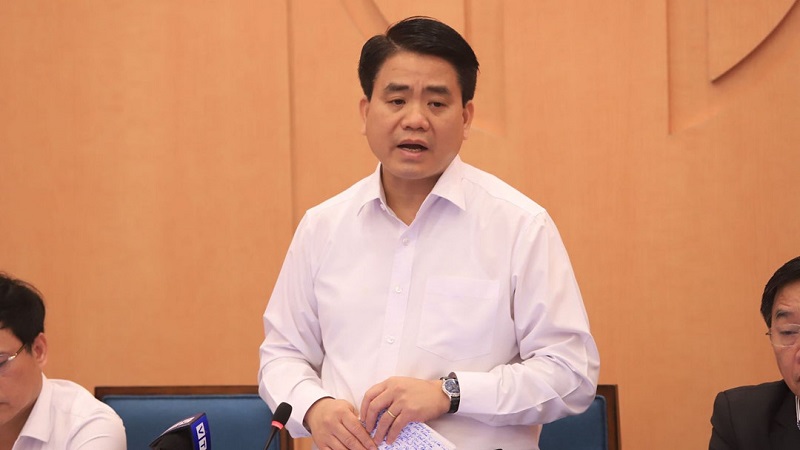Hanoi people advised to stay at home to avoid corona infection
Hanoi is entering a more intense phase of the fight against the coronavirus and it challenges the city's efforts if secondary transmission is not well managed.
Chairman Nguyen Duc Chung of the Hanoi People’s Committee has repeated the call on local residents to stay at home “as much as possible” to avoid contagion of the new coronavirus which is sweeping every part of the world.
| Chairman Nguyen Duc Chung of the Hanoi People’s Committee. Photo: Thanh Nien |
Locals should stay limit outdoor activities from now until April 5, and when out people need to wear facial masks, practice social distancing of at least two meters, and move in one way direction at supermarkets, the mayor said at a meeting late on March 23.
The reason is that Hanoi is at high risk of pandemic contagion in the next two weeks that is the incubation period (the time between exposure to the virus and the appearance of the first symptoms).
Vietnam has applied mandatory 14-day quarantine to all people, both Vietnamese and foreigners, coming from overseas since March 21. Before that, only people who came from or travelled across epidemic-hit areas, were infected with the virus or those in close contact with the infected were required to undergo quarantine, implying potential risks of transmission in the community.
The Ministry of Health has called on passengers of 21 flights carrying virus-infected people to contact health authorities for free tests and further instructions.
“This time is very important for the city to prevent secondary transmission or face multiple inflections if we failed to contain the virus,” Chung stressed.
Sources of contagion
Hanoi is facing three main sources of contagion namely those coming from China, South Korea, and Japan; foreigners and students from Europe and epidemic-hit countries; and foreigners and students who arrive in and return to Vietnam.
Hanoi is estimated to welcome around 20,000 people returning to the country and is preparing mass quarantine facilities.
Secondary transmission becomes serious as the identification of people who are connected with the infected ones remains difficult due to dishonest declaration.
So far, Hanoi has confirmed 39 people positive with the virus, including 30 coming by air from epidemic-stricken areas and 9 cases of secondary transmission.
More measures
The city’s leader asked local police to lock new detainees away from the existing prisoners in penitentiary centers. Meanwhile, authorities at quarantine facilities do not accept deliveries by relatives of people under quarantine to prevent disease transmission.
In addition, health authorities are asked to take samples of all people coming back to the country before March 21 for tests.
The Vietnamese government has called on its citizens to limit travel, wear masks at public places. In addition, entertainment facilities and restaurants are ask to shut temporarily.












